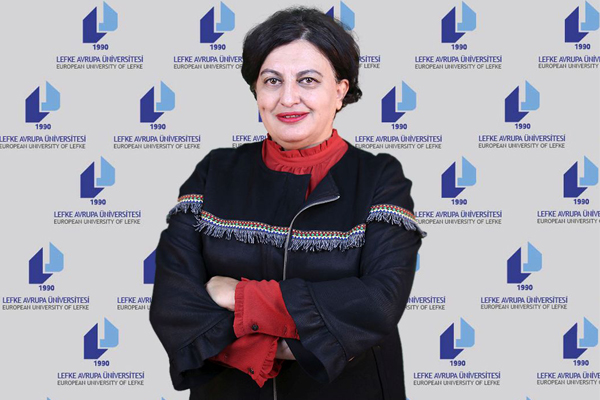EUL Department of First and Emergency Aid Lecturer Asst. Prof. Dr. Semra Aslay made a statement due to “World First Aid Day”

European University of Lefke (EUL) Vocational School of Health Services, Department of First and Emergency Aid Lecturer Asst. Prof. Dr. Semra Aslay drew attention to the importance of first aid due to “World First Aid Day” and made statements.
“Every year, the 2nd Saturday of September is celebrated as ‘World First Aid Day’. The theme of the year 2023 has been chosen to transmit first aid information digitally and to disseminate trainings in this way. One of the aims of this theme is to encourage people to be able to receive training in a digital way.” Aslay emphasised that the first aid application can only be brought to a certain level with repetitive training, that the lack of any first aid training in the environment where the person lives should not interrupt this effort, and that the purpose of the first aid is to inform the subject at the level appropriate to the knowledge and training.
” The situations that arise and urgently intervene may vary depending on where the first-aider lives. While a factory worker may most frequently encounter muscle-bone injury, housewives may most frequently encounter burns, food poisoning, loss of balance due to chronic back or headache. Aslan pointed out that the aim of the above examples is to show that the training of the individual and the severity of the emergency situation that is likely to be encountered frequently may not go parallel to each other. Therefore, lifelong first aid training should be on subjects that can be adapted to the environment over time, not on the same subjects.
Aslay continued her statement with the following expressions. ” Most situations requiring first aid develop at home. Therefore, the aim of lifelong education is to ensure that there is “a first aid in every home”. Digital resources that are free and accessible to the individual in the home environment are very helpful in this regard. However, in order to prevent information pollution and to gain experience from trained and experienced trainers, the websites of international aid organisations, videos and free online seminars are now prominent due to the ongoing impact of the pandemic. Obviously, except for the most common emergencies encountered in first aid practice and training, the subject routinely included in the programme is basic life support. Basic life support should be applied in cases where there is no consciousness, breathing cannot be fully evaluated or the first aid provider is not sure that the patient or victim has a pulse. Because after 5-7 minutes, permanent damage may occur if the brain’s need for oxygen is no longer fulfilled. In these cases, 112 should be called, the phone should never be switched off and the instructions of the expert personnel should be followed.”
Aslay emphasised the following points about first aid: “Until professional health aid is received, every first aid situation should be intervened with coolness, just as in basic life support. Each first aid application has a determined algorithm. If the first assistant applies this chain of interventions correctly and sequentially, the probability of survival of the patient or victim increases, regardless of the level of danger to life. Although most first aid practitioners, whether they have received digital or face-to-face training, may panic at the time of the incident. In these situations, it is vital to safely follow the instructions of the 112 emergency helpline. A person can apply first aid at any stage of his/her life or may be in need of it. However, they cannot always intervene with the same mood and correct approach. The most important way to ensure this standard is repeated training. The easiest way to access repeated trainings is through digital platforms today. It should not be forgotten that saving a person’s life, relieving or reducing the pain they feel, activating the emergency response system (112) is a civic duty and a humanitarian responsibility when done with individual efforts.”
Aslay concluded her words as follows: “It is important to contribute so that there can be a first helper in every home”.
